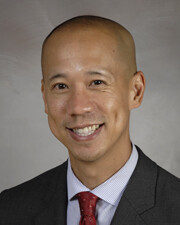- Adult Heart DiseaseDiseases of the arteries, valves, and aorta, as well as cardiac rhythm disturbances
- Pediatric and Congenital Heart DiseaseHeart abnormalities that are present at birth in children, as well as in adults
- Lung, Esophageal, and Other Chest DiseasesDiseases of the lung, esophagus, and chest wall
- ProceduresCommon surgical procedures of the heart, lungs, and esophagus
- Before, During, and After SurgeryHow to prepare for and recover from your surgery
May 21, 2019

The prevalence of obesity continues to climb nationwide, as does the prevalence of heart disease requiring surgery. Generally, body mass index (BMI), a calculation based on weight (in kilograms) divided by height-squared (in meters), is used to determine if you are overweight or obese. While there are certain limitations to this calculation, it has been shown repeatedly that patients with BMIs in the overweight and obese ranges are at increased risk for diabetes, kidney disease, heart failure, and other heart disease. At present, approximately 35%-40% of patients requiring heart surgery are obese.
Why It Matters
Excess body weight can pose additional problems before and after surgery. Obesity-related medical conditions such as kidney disease, heart disease, arthritis, and sleep apnea may limit your ability to engage in appropriate activity before and after surgery, which may prolong the process of recovery and regaining independence. While most heart operations are anecdotally more difficult to perform on obese patients, operations do not necessarily take longer and are not associated with prolonged use of the heart-lung bypass machine in overweight and obese patients.
However, after your operation, excess weight is associated with a number of complications that are worth discussing with your surgeon. Postoperative complications that are increased in obese individuals include:
- Reduced kidney function or kidney failure requiring dialysis
- Sternal (breastbone) wound infection and poor wound healing
- Prolonged time requiring mechanical ventilation (breathing machine)
- Pneumonia
Collectively, these factors generally result in slightly longer hospital stays for obese patients after heart surgery and increased overall operative risk.
What Can I Do About It?
The best strategy for any situation involving increased risk is prevention. You should have a candid conversation with your surgeon and your cardiologist to help you focus on ways to optimize your health both before and after your surgery. Questions may include:
- What level of exercise is safe for me before surgery?
- Are there any specific activities or breathing exercises (sometimes referred to as prehabilitation or prehab) I should do before surgery in order to reduce my risks for certain complications?
- Are there any unique things I should watch out for immediately after surgery or after I leave the hospital?
- When can I begin to exercise after surgery?
If you have diabetes or are pre-diabetic, be sure to ask about ways to ensure good blood sugar control prior to your operation. If you have specific goals for after your operation, don’t hesitate to discuss them with your surgeon and cardiologist.
Take notes to help you remember the important information that your doctors share with you. Your surgeon and cardiologist have fielded many similar questions before and are the experts when it comes to knowing you as a patient and the evidence behind your proposed treatment.
Postoperative follow-up also is critical. This allows your heart team to ensure you are not only healing appropriately, but also taking your medications correctly, regaining your independence, and staying on the right track toward a healthier life. Be sure your surgeon has cleared you before advancing your level of activity and exercise postoperatively. Heart surgery is physically and psychologically stressful, but setting goals can help you stay motivated toward progress. With your heart surgery finished, you can be on the way to shedding excess weight and any burden it may have carried.
Read more about what to expect after heart surgery.
The opinions expressed in this article are those of the author and do not necessarily reflect the views of The Society of Thoracic Surgeons.

